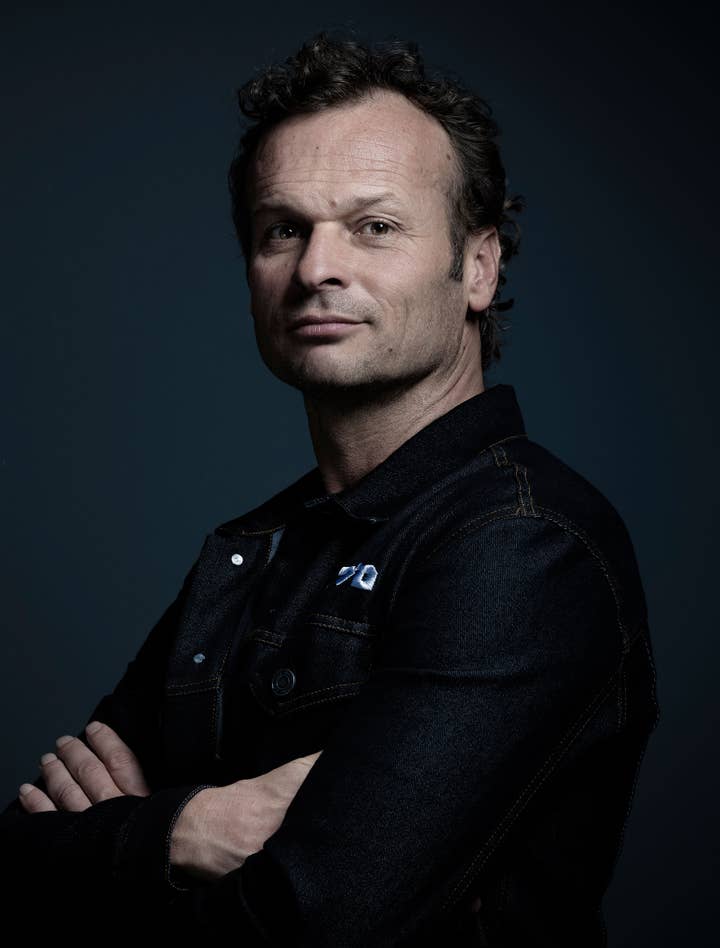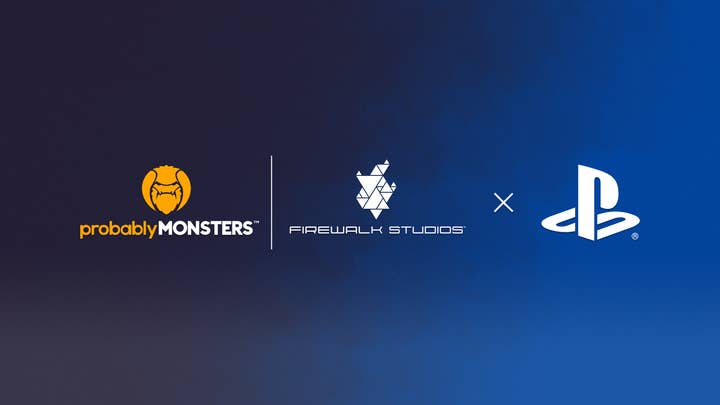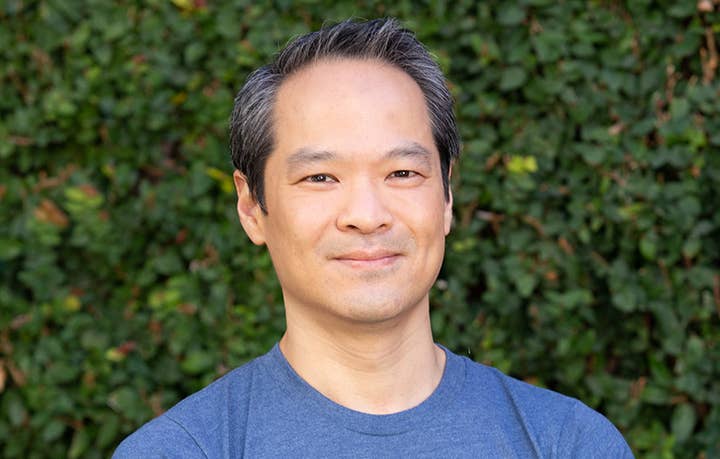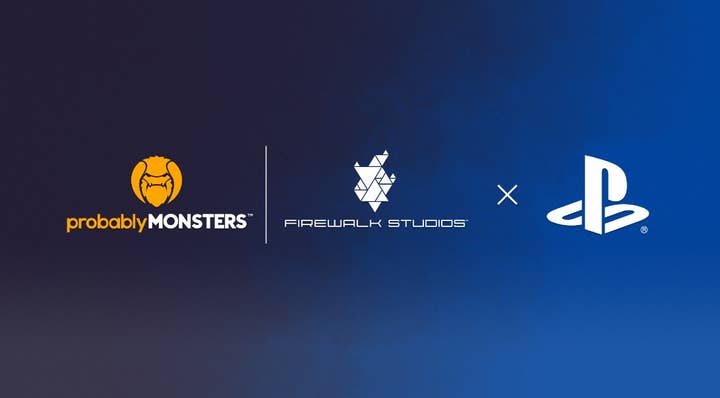PlayStation signs AAA multiplayer game from former Destiny veterans
The first game from Firewalk Studios will be a PS5 console exclusive
The debut game from AAA multiplayer developer Firewalk Studios will be published by PlayStation.
Firewalk is a new development team that is part of the ProbablyMonsters collective of studios, and was set up by former Bungie veterans, including studio head Tony Hsu (previously general manager and senior vice president of Destiny at Activision), game director Ryan Ellis (previously creative director at Bungie) and executive producer Elena Siegman (previously of Bungie, Irrational Games and Harmonix).
No details about the new multiplayer game were revealed, but it is an original IP and will be a console exclusive on PlayStation.
"We are really about if we can build a great team, we can build a great game," Hsu tells GamesIndustry.biz. "With a great partnership with Sony and with great teams like ProbablyMonsters continuing to support us, I think this will allow us to go further and faster."
Head of PlayStation Studios Hermen Hulst adds: "I see this as a strategic partnership that will allow us to continue evolving and exploring new territories for us. I believe that Firewalk's ambitious vision for its original multiplayer game is going to deliver someting really fresh and exciting."

PlayStation has spent much of the last console generation focused on creating more single-player, narrative-driven titles like God of War, Horizon: Zero Dawn and Uncharted. So the fact that it's signed and supporting a multiplayer game feels like a departure for the company.
"I think that the games that we make are as distinct and diverse as they can be," Hulst continues. "From Sackboy to Astro Bot to Dreams to these kind of games that you're referring to, like The Last of Us Part 2 and Ghosts of Tsushima. And you can bet that we will carry on making these games, because they are the heart and soul of what we do here at PlayStation studios. But at the same time, we are just as committed to making these quality experiences as we are to experimentation and to coming up with fresh ideas.
"But you know what? The lovely folks that we are talking to today at Firewalk Studios, they're story tellers just like the people at PlayStation Studios are. They are story tellers in a very innovative way. Matched with their deep experience as a collective in AAA multiplayer games, I think that is going to lead to some very interesting and very nice surprises for our fans.
"I am excited about this partnership, because in a way it is an extension of what it is that we do in bringing these new IPs to life."
"I am very interested in creating a diverse slate of titles"
Hermen Hulst, PlayStation
Although a AAA multiplayer game is a departure for Sony, Hulst says that the firm's drive for "distinct and diverse" content isn't all about finding games in different genres.
"I am very interested in creating a diverse slate of titles. Actually, the shape or form that they come in are less interesting to me than the fact that they are differentiated, diverse and distinctive. We tend to work with teams that do have something in common, which is that ambition that the Firewalk team has. But also the fact that [Firewalk] is a very strong, autonomous and, I would say, fiercely daring team... culturally, that's a really good match. So I seek those factors before I go into narrowing it down to genres or gameplay modes. It is more about the experience being differentiated and unique."
Indeed, the Firewalk team feels that Sony's love of narrative games isn't at all at odds with what it is building.
"It is all about story in multiplayer, but the story comes from a unique place," says creative director Ryan Ellis. "It's all about those surprising possibilities that happen when two or more players interact in the system. I think it's best summed up with the phase: 'Remember that time when...' Do you remember that time when we took down that boss in Diablo II and you got that set item you were looking for? Do you remember that time when I fell off the map in the Destiny raid, and it was hilarious even though our evening was shot? Do you remember that time when we took out those three tanks with that bombing raid in Battlefield 1942? Multiplayer is this evergreen, infinite story machine. It pumps out these moments and memories that sticks with us forever. That's why we love it. And that's also illustrative as to why we love this partnership. Sony has been this incredible partner that really believes in what we're doing and they are really empowering us to turn our biggest ambitions into the best experiences that we can. It's hard to ask for much more than that."

Firewalk Studios is one of three studios within ProbabyMonsters, which is a collective of developers that are built around sustainability and a 'people first' culture.
"Within ProbablyMonsters, we wanted to form studios around this idea of sustainability, and that means thinking about the long-term careers of our people," Hsu explains. "We wanted to not be able to build a great team for a single great game, but to build great games over the long term. When Sony met with us, I think they got a sense for how we were building the studio, but also this specific project. And since that time, they've been incredibly excited and great supporters of us."
Hulst continues: "What's so exciting is that on the one hand we are working with a group of truly experienced people. Not just as separate individuals, but also they have -- over several constellations -- collaborations on the kind of games that they are making.
"But on the other hand, we are working with a brand new team that has all the curiosity and openness of being new. It's a fresh group. We've been working together now for two years. We started pretty much on day one when you guys and girls came together, and that exploring of how to collaborate together, that journey, has been really nice. It's actually been very much like working with one of our first-party studios. That's how open and transparent Firewalk has been with our production folks on the PlayStation side. That means we can go back and forth, leverage their experience -- we are also learning a lot from them -- but also, the great services that help our wholly owned first-party teams so much, things like the art services, the sound services, the technology services, publishing, marketing... all of that will be available to team Firewalk as well."
It's the second start-up AAA studio that PlayStation has partnered with in just over a month. In March, the firm announced it is working with Jade Raymond's new developer Haven.
"There's some magic to that when people come together for the first time, and you start with a fresh slate," Hulst explains. "Everybody brings in a ton of experience, and you can do anything. And that's the same with the partnership we announced last month with Jade Raymond's Haven in Montreal. It's very similar now for Firewalk. A seasoned group of people with a fresh start working together from day one. It's actually what I really enjoy, because we are collectively building this thing now. And that's wonderful."
"We wanted to form studios around this idea of sustainability, and that means thinking about the long-term careers of our people"Tony Hsu, Firewalk
Firewalk Studios is in the 'upper double digits' in terms of staff, and boasts talent who have worked on games such as the aforementioned Destiny, but also BioShock, Call of Duty, Apex Legends, Mass Effect and Halo.
"It's about ambition," Ellis says. "We are ambitious, ProbablyMonsters is ambitious, Sony is ambitious. And we're not just ambitious for our games, but for our people as well. The ProbablyMonsters relationship really supports us to build the team that we need to build and the infrastructure that we need to build, in order to chase big things. And we really believe that great culture helps build those great games."
Executive producer Elena Siegman continues: "Building a culture that is focused on trust and respect, you see that, we talk about that a lot, we really have to build that. And we are. We're doing the work to make that happen."
The fact that the team is so new, and growing so quickly, means that it's been able to adapt quite well to the recent challenges posed by the pandemic.

"This was happening as we were growing, so has it been harder? I actually can't answer that because I don't have too much to compare it to," Siegman says.
"I know when we talk about being 'people first', when we had to all go into our homes, we absolutely had to provide for our teams immediately. And then we were apart physically, and we are so focused on togetherness, so we really came together around our playtests. We started playing the game regularly and that became the heartbeat of how we kept in touch. And quite quickly we were able to get that spirit back together. We've learned a lot from the experience. I can't say it wasn't hard, it's been difficult for everybody. But we've learnt so much from each other, and although we've been kept physically apart, it still felt very together."
Hsu adds: "In some ways, I think we were lucky to be at the point that we were. As tough as the pandemic has been, because we are a relatively young studio, we don't have a set process in terms of how to do everything. That meant we could really adapt our culture into that setting.
"Our playtest is the central place where we could communicate and hear each other's voices, that laughter and joy, and it became a real point of connection. So as new people came into the team, they could immediately plug in, see and feel the game that we were working on, but more importantly have that point of connection with the team. And we've really maintained that throughout. Sony has been participating in that with us, and it's been a real highlight for the team."
Hulst adds that the pandemic does mean that, for him at least, it's made all Sony's studios, internal and external, more accessible.
"One advantage of the work from home situation, for us at least, is that everybody is much more used to being dispersed around the globe," he concludes. "There's a lot of people dialling in from home for playtests. So if you're based in Europe, like myself, it's kind of democratised now. The teams on the other side of the world are more accessible to me. So I can join a town hall, I can join a meeting, which is really great for me."

